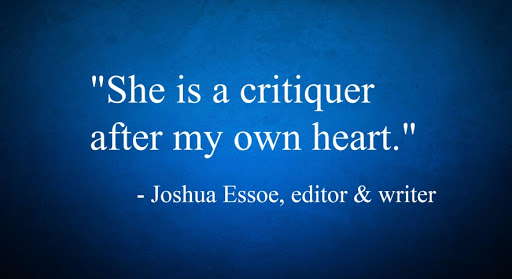UPDATE 2020--PLEASE READ THE UPDATED VERSION OF THIS ARTICLE HERE.
I once had a wise ballet teacher tell my class,
"The difference between confidence and arrogance is how you treat other people."
She's right. Sometimes I think society confuses confidence with pride. Likewise, society confuses humility with self-deprecation. In reality, it's completely possible to be confident and humble at the same time, without being prideful.
People who are arrogant want themselves to succeed and be better than everyone else. On the other hand, people who are confident want themselves and everyone around them to succeed.
 Let's take two characters from one of my favorite childhood shows, Dragon Ball Z to illustrate.
Let's take two characters from one of my favorite childhood shows, Dragon Ball Z to illustrate.
Vegeta's defining characteristic is arrogance--and he flaunts it. All of his goals and actions stem from his desire to be better than everyone else. He frequently treats those less powerful than him as garbage. He even puts his own wants before his wife and son. He shows no mercy; he's ruthless. He's full of himself and fully selfish.
Goku, on the opposite side of the spectrum, is confident. He wants himself and his friends to succeed. He cheers them on, treats them well, and despite being the most powerful person in the world, doesn't put himself above others.
(In contrast to Vegeta, he's very merciful. He always provides opportunities for villains to stand down. He's quick to forgive.)
Goku believes in his talents and abilities, but he's also teachable. He acknowledges his shortcomings and overcomes them. He's eager to learn from those more powerful than him, and he submits to whatever needs to be done. Goku is confident and humble. (Not self-deprecating.)
Arrogance vs. Confidence
People who are arrogant want themselves to succeed and be better than everyone else. On the other hand, people who are confident want themselves and everyone around them to succeed.
 Let's take two characters from one of my favorite childhood shows, Dragon Ball Z to illustrate.
Let's take two characters from one of my favorite childhood shows, Dragon Ball Z to illustrate.Vegeta's defining characteristic is arrogance--and he flaunts it. All of his goals and actions stem from his desire to be better than everyone else. He frequently treats those less powerful than him as garbage. He even puts his own wants before his wife and son. He shows no mercy; he's ruthless. He's full of himself and fully selfish.
Goku, on the opposite side of the spectrum, is confident. He wants himself and his friends to succeed. He cheers them on, treats them well, and despite being the most powerful person in the world, doesn't put himself above others.
(In contrast to Vegeta, he's very merciful. He always provides opportunities for villains to stand down. He's quick to forgive.)
Goku believes in his talents and abilities, but he's also teachable. He acknowledges his shortcomings and overcomes them. He's eager to learn from those more powerful than him, and he submits to whatever needs to be done. Goku is confident and humble. (Not self-deprecating.)
So, confidence and arrogance depend on how you regard others. When you start dissecting this, it makes sense. Confidence comes from security. When we are secure of ourselves, we don't feel threatened by others' successes. Why would we? We're secure. (Remember, you don't have to be perfect to be secure.)
Arrogance, pride, conceit, ironically, doesn't actually come from being too confident, but from insecurity--a fear that if others succeed, we have less value. Pride and selfishness are also linked. When we don't want others to succeed, we're being selfish.
Arrogance, pride, conceit, ironically, doesn't actually come from being too confident, but from insecurity--a fear that if others succeed, we have less value. Pride and selfishness are also linked. When we don't want others to succeed, we're being selfish.
Self-deprecation vs. Humility
Sometimes the world tell us, or we tell ourselves, that in order to be humble, we have to belittle ourselves. But self-deprecation isn't humility.
Some people have such low self-esteems that they can't bear to be teachable. It's too excruciating to hear what their weaknesses are, let alone try to overcome them. They may submit to whatever needs to be done, but with a heavy heart and not always willingly.
 Ron Weasley in The Order of the Phoenix (the book) is self-deprecating. He belittles himself again and again. Doesn't believe in himself. And not only is he unteachable, he sabotages his own success. If you have zero confidence, you can't progress, because you don't believe you can become better.
Ron Weasley in The Order of the Phoenix (the book) is self-deprecating. He belittles himself again and again. Doesn't believe in himself. And not only is he unteachable, he sabotages his own success. If you have zero confidence, you can't progress, because you don't believe you can become better. Self-deprecation can smother your motivation and individual worth. Don't mistake it for humility like most of the world does. As Elder Dieter F. Uchtdorf stated, humility isn't thinking less of yourself, but less about yourself.
While pride puts the focus on yourself (see how it links to selfishness again?), humility put the focus on others.
When you put your focus on others, you recognize their needs, their good qualities, their challenges, and their strengths, and you realize the world doesn't revolve around you--and in fact, you have much to learn from everyone.
We've all been prideful or self-deprecating at one time or another, but let's foster both confidence and humility. Let's change the way the world defines these characteristics and show what it means to be confident and humble by the way we live our lives.

















Great post Kami, beautifully written - this is something that we all should learn, keep in mind, and know :)
ReplyDeleteThanks Sindre! :) And thanks for commenting.
DeleteSaw Goku and had to come in. On the Confidence vs Arrogance issue, I have always followed one rule. Confidence is feeling you are awesome. Arrogance is feeling everyone else thinks you are awesome.
ReplyDeleteGreat post.
Haha, glad you couldn't resist. You might have to check back in a few weeks. I'm doing some writing dissections of Dragon Ball Z--you can learn from everywhere. And that rule is great! I haven't heard it before. I'll keep it in mind.
DeleteBingo! Brandon Ax. Yes!
DeleteThis. Is. AWESOME!!
ReplyDeleteThanks James ;)
DeleteThis was a wonderful post! Great insights. Thank you for posting!
ReplyDeleteThis comment has been removed by a blog administrator.
ReplyDeleteDear Kami,
ReplyDeleteI am just an ordinary student, I know it and I work hard to make up for it. So it hurts me a lot when someone does better than me comes over and say, "I suck too," then in the same breath, goes "I got 90/100, crap, I could have done better."
So here's another bad thing about self-deprecation - you lose the confidence of others by being dishonest about your abilities. With that person, I can't mention my own grade - if 99 is crap, then what is 78, a failure?? With that person, I can't discuss what he thought about the current topic - was it hard/tricky or doable? - because you know his answer is going to be some BS like "I don't understand anything at all, it was so hard!!"
I hope your post goes some way in bringing out the honesty in others!
I know I'm a little late to replying this, but those are good points also. Thanks.
DeleteI see nothing wrong with pride... You did nothing to support the idea that all pride is bad, besides offhandedly equate it to selfishness (and offer no back up for that).
ReplyDeleteSome pride, like having pride in racial, religious, sexual, national and other 'luck of the draw' parts of ourselves is pointless and shallow.
Other pride, like the pride that comes from seeing a job well done, or enjoying the fruits of hard labor is earned, and deserved. There is nothing inherently selfish about that kind of pride, and, in my opinion, there's nothing wrong with it either.
That kind of pride can help boost a person's self-confidence, especially people who are self-deprecating, because it can teach them to associate good feelings of SELF value in their work, rather than attributing any successes to luck or happenstance, as people with low self-esteem are wont to do.
The first definition of the word "pride" is this: "a high or inordinate opinion of one's own dignity, importance, merit, or superiority." This was the definition I was referring to, which is why, in this article, I used it interchangeably with the word "arrogance," which means "to have self-superiority."
DeleteLike you said, though, there are different kinds of pride. I have often felt like the word "pride" has too loose of a definition in the English language. There is "arrogant pride" like I mentioned above and then there is a "pleasing pride," which is what you are talking about. When we are pleased, we feel satisfaction. When moms say, "I'm so proud of you," they are really saying, "I'm so pleased with what you've become" or "I'm very satisfied with your accomplishments." Likewise, we are very pleased or very satisfied with a job well done, to see the fruits of our labors, etc. That is the fourth definition of "pride": "pleasure or satisfaction taken in something done by or belonging to oneself or believed to reflect credit upon oneself."
You are right, that kind of "pleasure pride," can be a good thing.
Thank you for commenting and drawing that to my attention so that I could clarify what I meant. Now future people won't be confused. I also liked your point about "luck of the draw" pride, which is interesting and another discussion in and of itself.
Thanks again.
To anonymous: He's not being dishonest. He just has higher standards than you.
ReplyDeleteI found your blog while looking for info on self-deprecation vs. humilty. I'm part of a curriculum review committee at my church, and I was trying to compare and contrast two different author's approaches- and you've clearly laid out the thoughts that were swirling in my head. While these positions my sound and look alike at a glance, they are very different at heart, and reflect immaturity or maturity. Thanks so much- I'm printing this out to accompany my synopsis of two books we're considering. Well thought out, well written!
ReplyDelete